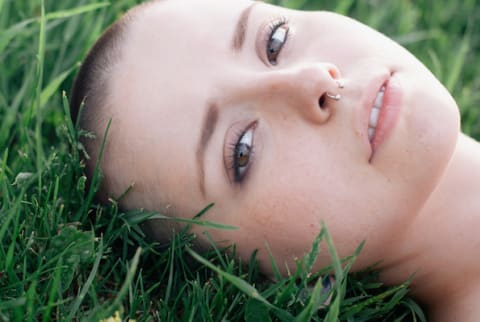Advertisement

In 2006, I was living an amazing life as the CEO of a small company, a whitewater canoe guide and an involved volunteer, when I was diagnosed with a rare form of ovarian cancer.
While at first I was so scared and totally overwhelmed with the idea of facing a serious illness without a built-in support system, today I am so grateful to cancer for all that it has taught me — despite two recurrences, a complete hysterectomy and thousands of dollars in medical bills.
Here are four of those important life lessons that I learned from my battle with cancer:
1. How we see life is how we experience it.
"Why me?" is often the obvious question when diagnosed with cancer, or blindsided in an accident or even devastated by a natural disaster.
"Why not me?" was my response. I believe that nothing “bad” or “good” ever happens to us, but we put labels on our experiences and live them as one or the other. When we can see everything that occurs as an opportunity to learn and grow, then we can be grateful for it all.
We can choose how we see every situation in life, and how we see it, is how we will respond to it. We can’t always control what happens, but we can always control how we respond.
2. Creating dis-ease is our body’s loving way of helping us heal.
I know that sounds crazy at first glance, but a lack of ease in our lives helps us reveal the patterns that aren’t working for us. These limiting beliefs and painful cellular memories are completely hidden from view, and can sabotage us without our even realizing it. When life shakes us up, it is a great opportunity to explore what we want, and choose a different path that is healthier and more fulfilling.
3. We can heal ourselves.
I fully believe in the power of western medicine to handle medical crises and emergencies. I have had six surgeries, six rounds of chemo and many courses of antibiotics in my life. While medical interventions are sometimes necessary, I believe we rely too much on something outside of ourselves to cure us, and neglect our own role in the process. The placebo effect and quantum physics make clear the impact that our thoughts have on our well-being, health and overall healing process.
4. Receiving well is as important as giving.
I am a giver. Always have been. I didn’t realize how much of my worth I derived from being constantly busy contributing to others. I worked long hours for low pay, unconsciously thought I was liked because of how helpful I was, and put the needs of others always ahead of my own. The universe was kind enough to give me cancer so I could see how unhealthy this pattern was, and allow others to contribute to me for a change.
Now I know I am worthy of receiving even when I’m NOT sick.
Nearly 31 million people live alone in this country, comprising 28 percent of U.S. households, according to the book Going Solo by Eric Klinenberg. Being single was a defining factor in my cancer experience, not to mention my life.
I surveyed 100 other single survivors and found that we all struggled with the following: feeling like damaged goods, feeling alone with really important life decisions, body image, fertility concerns and dating anxiety.
And on that note, here are five things I learned as a single woman, with cancer:
1. I have to be myself.
Dating anxiety comes up when we feel the need to impress, and that could mean putting on an act. But if someone falls in love with the act, then where does that leave me? I am me, and cancer helped me see the beauty in that, and helped me stop trying to be someone “more impressive.”
2. There is nothing wrong with me.
No, I can’t have kids, and yes, I have 15 scars on my stomach. I lost my hair during chemo and am now at risk for the cancer returning for the rest of my life, but I am NOT damaged goods! And neither are you. The Japanese aesthetic of wabi-sabi says that it is the imperfect parts of us that are the most beautiful and lend the most character.
3. Being single is awesome!
I used to have single shame, and be embarrassed about my lack of a relationship. (“I don’t know why I’m not married yet, so stop asking!”) Now I see all the great aspects of solo-hood — with freedom and flexibility being at the top of the list. I still want to share my life with someone, but I am grateful for this time to do exactly what I want to do.
4. Being vulnerable is key.
It’s never easy to reveal those parts of ourselves that we might feel ashamed of. For instance, telling someone I’ve just started dating that I had cancer isn’t always easy. When someone is worthy of knowing, I will share (i.e. after I know there is a potential future with him, but before he feels like I’ve kept something important from him).
Finding the right time is unique to each person and relationship.
5. I am not alone.
“Feeling alone is far worse than having cancer.”
The first line of my book expresses the real dis-ease for many of us, but we are never really alone. We long for a special relationship with one magical person, but fail to notice all the incredible people in our lives who support us daily. Cancer reminded me of the abundance of love I already had.
